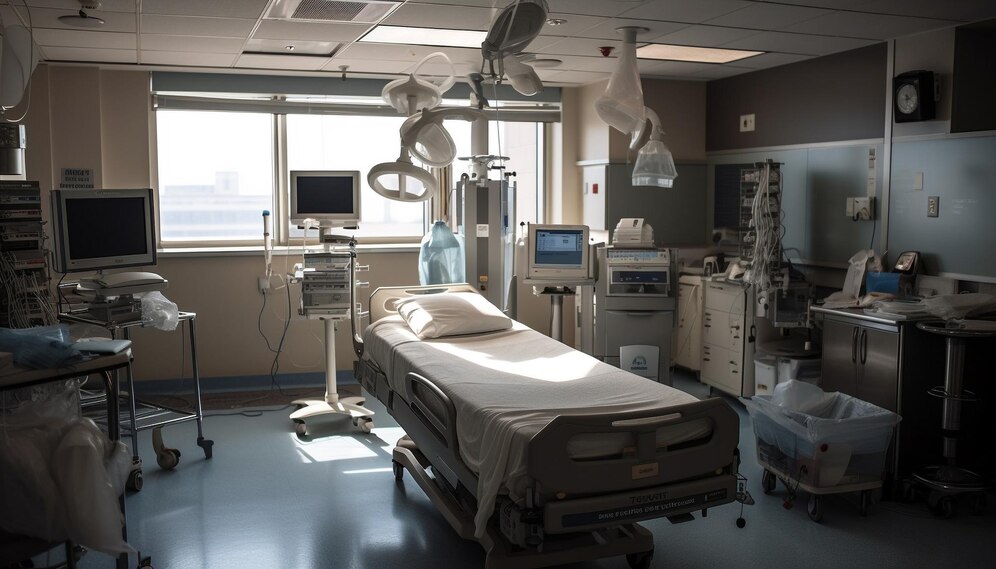Safeguarding Indian Healthcare : Empowering Small & Medium Hospitals

In India’s rapidly evolving healthcare landscape, small and medium-sized hospitals have emerged as the unsung heroes, providing accessible and affordable medical services to millions. However, these establishments often grapple with myriad challenges, ranging from stringent regulations to infrastructural constraints and financial limitations. This comprehensive article delves into the pivotal role played by these healthcare institutions, underscoring the need for a supportive ecosystem that fosters their growth and sustainability.
The Backbone of Rural Healthcare
Small and medium-sized hospitals are the backbone of India’s rural healthcare system, serving as lifelines for communities that lack access to larger medical facilities. These establishments cater to the primary healthcare needs of the populace, offering essential services such as outpatient consultations, routine medical procedures, and emergency care. Their proximity to remote areas and deep-rooted connections with local communities make them indispensable in bridging the healthcare gap.
Unraveling the Regulatory Labyrinth
One of the most formidable challenges faced by small and medium-sized hospitals is navigating the intricate web of regulations that govern the healthcare sector. Compliance with stringent norms, such as the Maharashtra Nursing Home Registration Act (MNHRA) and the Clinical Establishments (Registration and Regulation) Act, often proves to be a daunting task. These regulations, while aimed at ensuring quality standards, can inadvertently impose financial and administrative burdens on smaller healthcare providers.
The Struggle for Financial Sustainability
Inadequate funding and limited revenue streams have long been a thorn in the side of small and medium-sized hospitals. Many of these establishments operate on shoestring budgets, making it challenging to invest in essential infrastructure, procure modern medical equipment, and retain skilled healthcare professionals. The lack of financial resources can hinder their ability to provide comprehensive and high-quality care, ultimately compromising patient outcomes.
Empowering Through Accreditation and Ratings
To address the challenges faced by small and medium-sized hospitals, innovative solutions are being explored. One such initiative is the Transformational Impact Rating System, developed in collaboration with volunteers from the Wharton Business School. This rating tool aims to provide visibility and support to public-spirited healthcare initiatives, enabling them to qualify for funding and attract volunteers based on their potential impact.
By objectively assessing factors such as community impact, best practices, and human resource management, the Transformational Impact Rating System empowers donors and stakeholders to make informed decisions. This approach not only facilitates targeted funding but also fosters a culture of transparency and accountability within the healthcare sector.
The Role of Volunteers and Staff
Beyond financial support, small and medium-sized hospitals often benefit immensely from the dedication of volunteers and staff members. These individuals, driven by a passion for healthcare and a desire to serve underserved communities, bring invaluable expertise and a commitment to excellence. Initiatives like the Transformational Impact Rating System can help attract and retain such talent, fostering an environment of continuous learning and professional growth.
Embracing Technology and Innovation
In an era of rapid technological advancements, small and medium-sized hospitals must embrace innovation to remain competitive and deliver high-quality care. This includes leveraging digital solutions for patient record management, implementing telemedicine platforms to expand reach, and exploring cost-effective medical equipment financing options. By harnessing the power of technology, these hospitals can streamline operations, enhance efficiency, and ultimately improve patient outcomes.
Building Resilient Healthcare Systems
The COVID-19 pandemic has underscored the importance of resilient and robust healthcare systems, capable of withstanding unprecedented challenges. Small and medium-sized hospitals played a crucial role in responding to the crisis, often serving as the first line of defense against the virus in rural and remote areas. However, the pandemic also exposed the vulnerabilities of these institutions, highlighting the need for comprehensive preparedness plans and robust support mechanisms.
Fostering Public-Private Partnerships
Strengthening the healthcare ecosystem for small and medium-sized hospitals requires a collaborative approach involving various stakeholders. Public-private partnerships can play a pivotal role in this endeavor, leveraging the expertise and resources of both the government and private sector. Such collaborations can facilitate knowledge sharing, capacity building, and the development of sustainable financing models, ultimately benefiting patients and communities alike.
Investing in Healthcare Infrastructure
Adequate investment in healthcare infrastructure is paramount for the growth and sustainability of small and medium-sized hospitals. This includes the construction of modern facilities, the procurement of advanced medical equipment, and the development of robust supply chains for essential medical supplies. By prioritizing infrastructure development, these hospitals can enhance their operational efficiency, attract skilled healthcare professionals, and provide high-quality care to their patients.
Addressing the Urban-Rural Divide
While small and medium-sized hospitals play a vital role in rural areas, their presence in urban settings should not be overlooked. In many cities and towns, these establishments cater to the healthcare needs of underprivileged communities, offering affordable and accessible medical services. By supporting these urban healthcare providers, policymakers can bridge the gap in healthcare access and promote equitable distribution of resources.
Promoting Healthcare Tourism
India’s rich cultural heritage and diverse medical traditions, combined with its skilled healthcare professionals and advanced medical facilities, present an opportunity for the country to emerge as a global healthcare tourism destination. Small and medium-sized hospitals can play a crucial role in this endeavor by offering specialized treatments, alternative therapies, and personalized care at competitive prices. By leveraging India’s strengths in this domain, these hospitals can attract international patients, generating revenue and fostering cross-cultural exchange.
Fostering Community Engagement
Effective community engagement is essential for the success of small and medium-sized hospitals. By actively involving local stakeholders, such as community leaders, patient advocacy groups, and non-governmental organizations, these hospitals can better understand and address the unique healthcare needs of the communities they serve. This collaborative approach not only enhances trust and accountability but also fosters a sense of ownership and shared responsibility for healthcare outcomes.
India’s small and medium-sized hospitals are the unsung heroes of the nation’s healthcare ecosystem, providing vital services to millions of citizens. By addressing the challenges they face, fostering an enabling environment, and embracing innovation, these institutions can unlock their full potential and contribute to the realization of a healthier and more equitable society. It is imperative that policymakers, healthcare professionals, and stakeholders collaborate to create a supportive ecosystem that empowers these hospitals to thrive, ensuring that no one is left behind in the pursuit of quality healthcare.











